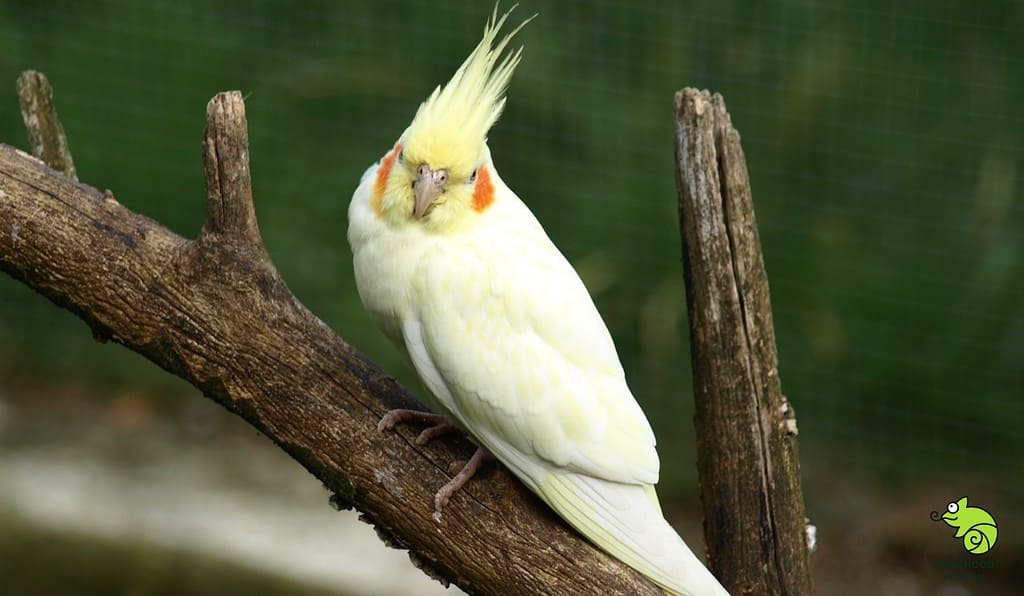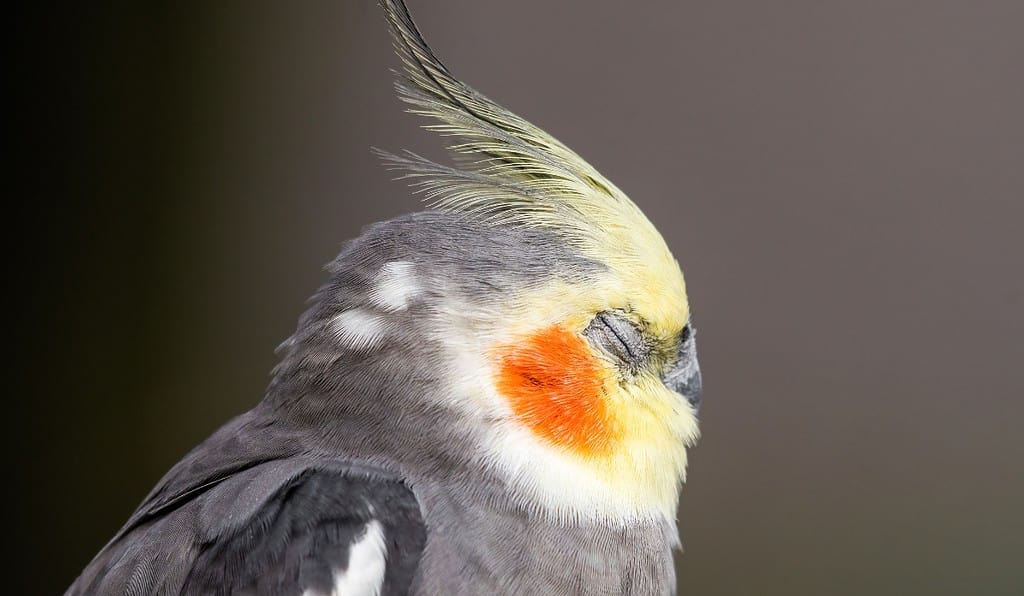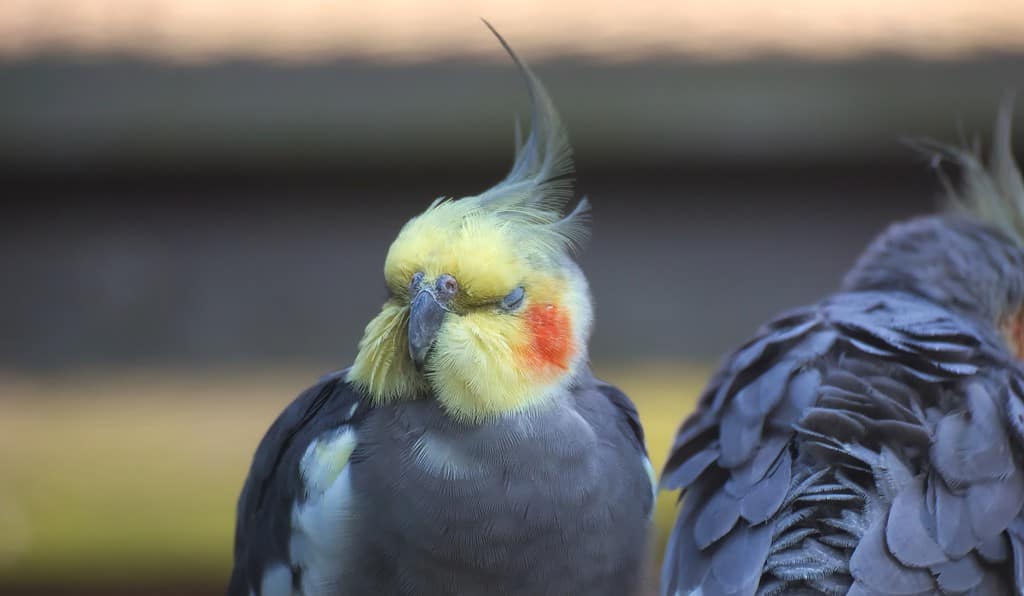
Cockatiels, with their vibrant plumage and captivating melodies, have become a cherished companion in many households. Their playful antics and endearing personalities make them a favorite among bird enthusiasts. Yet, the sudden and unexplained death of these feathered friends often leaves owners heartbroken and searching for answers.
As a general rule, the primary reasons behind sudden cockatiel deaths include night frights, infections, heat exposure, smoke inhalation, dehydration, food poisoning, and various diseases. Recognizing symptoms early and understanding potential threats are crucial for their well-being.
Curious about how to ensure your cockatiel’s health and longevity? Dive in to uncover insights from a seasoned veterinarian’s perspective.
Do Cockatiels Die Easily?
Cockatiels, with their vibrant personalities, are a joy to have around. However, they’re not as hardy as some might think. While a minor ailment might not faze a cat or dog, the same issue could be fatal for a cockatiel. Their high-energy nature, due to their fast-paced metabolisms, means that illnesses can take a toll on them quickly. Their unique respiratory system, which is adept at functioning at high altitudes, becomes a vulnerability when exposed to harmful substances like mold, non-stick Teflon, and certain fragrances. Stress, too, can be a silent killer. Whether it’s the anxiety from a looming cat or the shock from sudden noises, stress can weaken a cockatiel’s immune system, sometimes leading to fatal heart attacks.
10 Reasons Behind Sudden Death in Cockatiels
Before diving deeper into the specific causes, it’s essential to understand that cockatiels, with their delicate systems, are more susceptible to various threats than other pets. Recognizing and mitigating these risks can ensure they live a full, happy life.
1. Toxins
Toxins are a significant threat to cockatiels. Whether ingested or inhaled, they can have severe consequences. For instance:
- Teflon (PTFE) in Non-Stick Cookware: When heated, non-stick pans release fumes that might go unnoticed by us but can be deadly for cockatiels. It’s always a good idea to keep your bird away from the kitchen, especially when cooking.
- Plant Toxins: Some plants, like avocados, contain substances harmful to cockatiels. It’s essential to be aware of these and keep such plants out of their reach.
2. Diseases
Diseases can strike when least expected, and early detection is crucial. Some common ailments include:
- Genetic Disorders: Conditions like renal diseases can lead to organ failure in cockatiels.
- Tuberculosis: While not common, this disease can lead to sudden death in cockatiels.
3. Poor Diet
A balanced diet is crucial for the well-being of your cockatiel. High-glucose commercial foods might seem appealing but can harm your bird in the long run.
4. Physical Injuries
Accidents happen, but being aware of potential dangers can prevent them. Be wary of:
- Household Accidents: Windows and fans are common culprits. Ensure your bird’s flying space is safe.
- Bird Toys: While toys are great for entertainment, some can pose a threat. Always choose toys that are safe for cockatiels.
5. Night Frights
Ah, night frights. I’ve seen this more times than I’d like to admit. Cockatiels, like many of us, enjoy their beauty sleep. But unlike us, they don’t have the luxury of a bedside lamp. They don’t see well in the dark and can be easily startled by sudden noises or movements. This can send them into a panic, causing them to fly erratically around their cage, sometimes even crashing into its walls. These episodes can be so intense that, tragically, they can sometimes be fatal.
From my years of experience, I’ve found that a simple solution can make a world of difference: a night light. Placing a soft light near their cage can help them see and reduce the chances of these frightful incidents. And if you ever witness your feathered friend in the midst of a night fright, immediately turn on the room lights to help them see and calm down. Speak to them gently, play some soft tunes, and ensure they’re okay. If they’ve sustained any injuries, it’s crucial to consult with a vet.
6. Infections
Infections can be a silent killer. There are various bacterial and viral infections that can plague our little friends. These can lead to respiratory issues, changes in feather color, and other alarming symptoms. An unclean environment can make your cockatiel susceptible to parasitic infections.
You might be thinking, “How can I protect my bird?” Well, prevention is key. Regularly cleaning their cage, food, and water bowls can make a significant difference. And always ensure they’re on a well-balanced diet to boost their immune system. If you notice any signs of illness, even if they seem minor, it’s essential to take them seriously. And remember, always keep your cockatiel away from other birds showing signs of sickness.
7. Heat Exposure
Imagine being trapped in a sauna with no way out. That’s what it’s like for a cockatiel left in direct sunlight or a hot room. They can quickly overheat, leading to heat stroke or sun sickness. And while they might try to hide their discomfort, signs like lethargy or puffiness can give them away. If you’re not around to notice these signs, you might return only to find your beloved pet has passed away. Always ensure they’re in a comfortable environment, away from direct sunlight or extreme heat.
8. Cigarette and Tobacco Smoke
I can’t stress this enough: smoke is deadly for cockatiels. While larger pets like dogs or cats might develop issues over time, for cockatiels, the effects can be immediate. Even smoke from an outdoor bonfire can be harmful if it drifts inside. It’s one of the leading reasons many find their pets lifeless come morning. Always ensure their environment is smoke-free.
9. Dehydration
Water is life. Cockatiels can only survive about 24 hours without it. And if they’re in direct sunlight or a room hotter than 80°F, that time frame shrinks dramatically. Always ensure their water bowl is full and easily accessible. Especially for younger or newer cockatiels, who might not be familiar with their cage’s layout.
10. Food Poisoning
Cockatiels are naturally curious and will often peck at anything that looks interesting. But this curiosity can sometimes lead them to consume foods that are toxic to them. Some of the common culprits include chocolate, apple seeds, garlic, onions, uncooked beans, and even tomato leaves. Always be mindful of what’s within their reach and ensure they’re only consuming safe, cockatiel-approved foods.
Now, let’s delve deeper into some common diseases that can affect our feathered friends.
Common Cockatiel Diseases

Navigating the world of cockatiel health can be a bit like walking through a minefield. There are so many potential pitfalls, and the stakes are incredibly high. But with knowledge comes power. By understanding the common diseases that can affect our feathered companions, we can be better prepared to protect them.
Candidiasis
This is a fungal infection that I’ve come across quite often in my practice. Candidiasis primarily affects the beak, crop, and digestive system of cockatiels. Symptoms can include white patches in the mouth, regurgitation, and a change in droppings. The primary cause? An imbalance in their gut flora, often due to antibiotics or a poor diet. If you suspect your bird has this, it’s essential to get them to a vet. With the right antifungal medication and some dietary changes, they can bounce back in no time.
Egg Binding (Dystocia)
For female cockatiels, this is a genuine concern. It’s when an egg gets stuck in the reproductive tract. It’s as painful as it sounds and can be life-threatening. Symptoms include a swollen abdomen, straining, and lethargy. Causes can range from a lack of calcium in the diet to obesity or even age. Immediate veterinary care is crucial. In the meantime, you can try to help by placing her in a warm, humid environment, like a bathroom with a steamy shower running.
Pacheco’s Disease
This viral infection is a silent assassin. Cockatiels can carry the virus without showing any symptoms, only for it to flare up during times of stress. Symptoms can include sudden death, diarrhea, and nasal discharge. It’s highly contagious, so if you have multiple birds, it’s essential to quarantine any showing symptoms. There’s no cure, but with supportive care, many birds can recover.
Psittacosis (Parrot Fever)
Despite its name, this isn’t exclusive to parrots. Cockatiels can contract it too. It’s a bacterial infection that can lead to respiratory issues, diarrhea, and lethargy. The tricky part? It’s zoonotic, meaning it can transfer to humans. If you or your bird show symptoms, it’s crucial to seek medical attention immediately. With the right antibiotics, both you and your feathered friend can make a full recovery.
Polyoma
This virus primarily affects young birds, leading to sudden death, feather abnormalities, and a swollen abdomen. It’s heartbreaking, especially because many birds show no symptoms until it’s too late. The best defense? Vaccination. Regular check-ups with your vet can ensure your cockatiel is protected.
In the end, the health and well-being of our cockatiels rest in our hands. By being vigilant, informed, and proactive, we can ensure they live long, happy lives by our side. Remember, when in doubt, always consult with a professional. Your cockatiel’s life may very well depend on it.
Signs Your Cockatiel Might Be Dying

In my years as a veterinarian, I’ve seen many cockatiels and their concerned owners come through my clinic doors. Recognizing the signs that your feathered friend might be unwell is crucial. Cockatiels, like many birds, are masters at hiding their illnesses. It’s an instinctual behavior to prevent appearing vulnerable to predators. But for you, their caregiver, it’s essential to pick up on subtle changes in their behavior or appearance.
One of the most challenging aspects of being a cockatiel owner is that these birds can sometimes show only mild symptoms before their health deteriorates rapidly. You might notice your bird looking a tad under the weather one day, and the next, they could be seriously ill. That’s why regular vet visits are so vital. It’s not just about addressing immediate concerns but also catching potential issues before they escalate.
Determining the Actual Cause of Death
Losing a beloved pet is heart-wrenching, and the pain is often compounded by not knowing what caused their demise. As a vet, I often recommend avian necropsy, a post-mortem examination, to determine the cause of death. This procedure can provide closure to grieving pet owners by giving them answers. Understanding the reasons behind a pet’s passing can also offer peace of mind and ensure that other pets in the household are not at risk from the same factors.
While it’s never easy to think about, gaining insights into what led to your cockatiel’s passing can be an essential step in the grieving process. It allows you to find closure, make informed decisions for any other birds you might have, and ensure that you’re providing the best care possible for your feathered companions in the future.
Precautions to Prevent Sudden Death in Cockatiels
As someone who’s dedicated their life to the well-being of animals, I can’t stress enough the importance of preventive care. It’s always better to be proactive than reactive, especially when it comes to the health of your cockatiel.
First and foremost, let’s talk about diet. A balanced diet is the cornerstone of good health for any creature, and cockatiels are no exception. Ensure you’re providing a mix of high-quality pellets, fresh fruits, and vegetables. Steer clear of foods high in sugar or salt, and always double-check before introducing any new food item to ensure it’s safe for your bird.
Safety is another paramount concern. Cockatiels are curious creatures, and their exploratory nature can sometimes get them into trouble. Regularly inspect their living space for potential hazards. This includes checking for toxic plants, ensuring there are no small items they could ingest, and making sure there’s nothing they could get tangled in. Also, be mindful of household toxins. Even something as seemingly harmless as a scented candle could pose a risk.
When to See an Avian Vet
I’ve often heard the saying, “An ounce of prevention is worth a pound of cure,” and it rings especially true for our feathered friends. Regular check-ups are a must. But how do you know when an unscheduled visit is in order?
Here are some symptoms that warrant a trip to the vet:
- Changes in droppings (consistency, color, or frequency).
- Labored breathing or a change in vocalizations.
- A decrease in appetite or sudden weight loss.
- Lethargy or a lack of interest in usual activities.
- Any visible injuries or abnormalities like swelling.
Remember, early detection can make all the difference. If something feels off, trust your instincts and consult with a professional.
Final Thoughts
The bond between humans and their pets is something truly special. Cockatiels, with their vibrant personalities and endearing quirks, have a way of nestling into our hearts. Understanding the reasons behind cockatiel deaths is not just about preventing heartbreak; it’s about ensuring these incredible birds live long, happy, and healthy lives by our sides.
I encourage you to always stay informed, be observant, and never hesitate to seek expert advice when it comes to the well-being of your feathered companion. And if you’ve ever faced challenges or have stories to share, please drop them in the comments. Your experiences can be invaluable to fellow bird enthusiasts.
